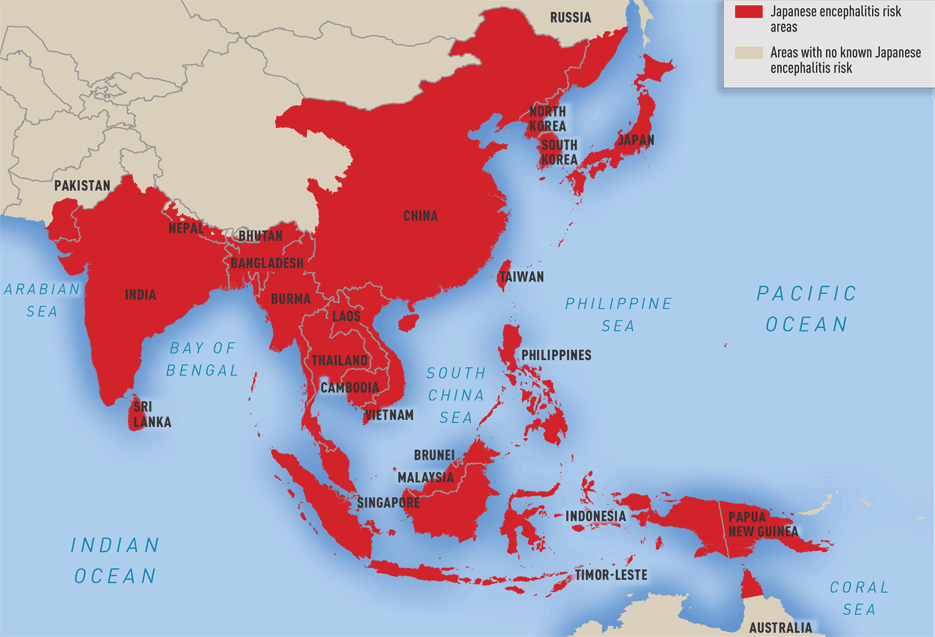
The Department of Health has warned that a rare disease known as Japanese encephalitis has been detected in regions of the Cordillera Mountains.
The disease is viral and spreads via blood-sucking insects, particularly mosquitoes. It affects the nervous systems, causing flu-like symptoms, vomiting fever, headaches chills and, in some cases, even death.
The disease infects not only humans but also domestic animals, birds, bats, snakes and frogs.
The symptoms appear about one week after infection.
Those infected can suffer brain damage or paralysis because it also affects the spinal cord.
Most human cases result in only mild symptoms, but about one in four cases ends in death.
A vaccination for the disease is available but there no known cure once infected.
ABOUT THE DISEASE:
Japanese encephalitis (JE) virus is the leading cause of vaccine-preventable encephalitis in Asia and the western Pacific.
For most travellers to Asia, the risk for JE is very low but varies based on destination, duration of travel, season, and activities.
JE virus is maintained in a cycle involving mosquitoes and vertebrate hosts, mainly pigs and wading birds.
Humans can be infected when bitten by an infected mosquito. Most human infections are asymptomatic or result in only mild symptoms.
However, a small percentage of infected persons develop inflammation of the brain (encephalitis), with symptoms including sudden onset of headache, high fever, disorientation, coma, tremors and convulsions.
About one in four cases are fatal. There is no specific treatment for JE.
Patient management focuses on supportive care and management of complications. Steps to prevent JE include using personal protective measures to prevent mosquito bites and vaccination.
Symptoms
-
Less than 1% of people infected with Japanese encephalitis (JE) virus develop clinical illness.
-
In persons who develop symptoms, the incubation period (time from infection until illness) is typically 5-15 days.
-
Initial symptoms often include fever, headache, and vomiting.
-
Mental status changes, neurologic symptoms, weakness, and movement disorders might develop over the next few days.
-
Seizures are common, especially among children.
Treatment
-
No specific treatments have been found to benefit patients with JE, but hospitalization for supportive care and close observation is generally required.
-
Treatment is symptomatic. Rest, fluids, and use of pain relievers and medication to reduce fever may relieve some symptoms.
Outcome
-
Among patients who develop encephalitis, 20% – 30% die.
-
Although some symptoms improve after the acute illness, 30%-50% of survivors continue to have neurologic, cognitive, or psychiatric symptoms.
(Information from the Centers for Disease Control and Prevention)
